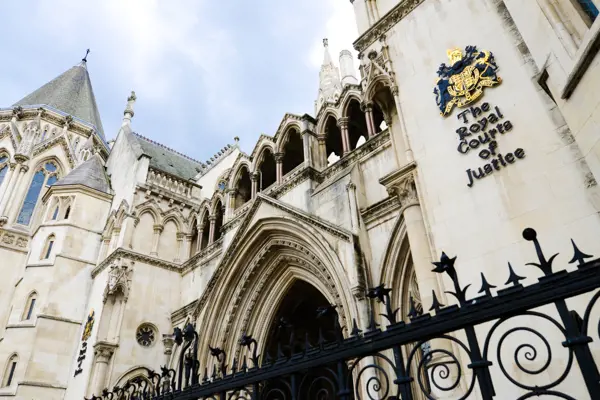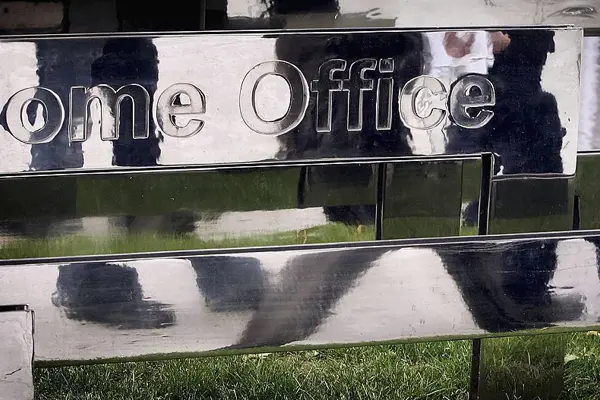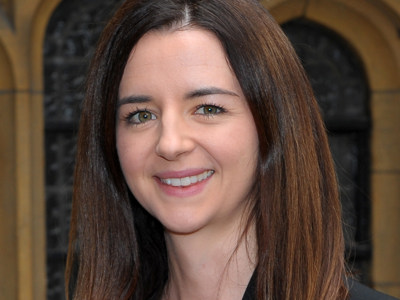
Headway Action for Brain Injury Week
Headway's Action for Brain Injury (ABI) Week, this year focuses on memory loss, and Katherine Wilkinson from the serious injury team considers the implications of memory loss on our clients.
Posted on 01 October 2020
Our memory enables us to remember information, experiences and people, and store that information so that we can recall it minutes, weeks, months and even years later.
There are different types of memory which enables us to learn facts about the world or the meaning of words, skills such as driving or playing a musical instrument and a complex type of memory that allows us to recall personal events from our past. Spatial memory enables us to learn and remember how to find our way around the world in our day to day lives.
Different types of memories are stored across many connected parts of the brain involved in forming, storing and retrieving memories. A traumatic brain injury to any of these parts of the brain can lead to a person experiencing difficulties with their memory, which can have a devastating impact on their lives and those around them.
Old memories and new memories are stored differently in the brain. Often information stored from before a brain injury may be forgotten. This is known as retrograde amnesia and clients often experience a gap in their memory from before the injury which can range from a few minutes before the incident, to a few months or even longer.
For example, some of our clients who have been involved in road traffic collisions don’t remember the hours or days before sustaining their brain injuries, having no recollection of what has happened to them. This can be disconcerting for clients, to have ‘lost’ a period of time completely.
There is another type of memory loss, anterograde amnesia, which refers to problems with memory for information learned after the injury.
Following traumatic brain injury, many of our clients experience difficulties with their memory, such as remembering names of their friends and family, words to describe items or articulate their needs. Remembering storylines of television programmes or how to do basic tasks, such as make a cup of tea, can be problematic.
These difficulties can mean that it is not possible for someone to live independently or to access the community without support. Memory problems can impact significantly on a person’s day to day life, and particularly on their confidence, relationships and work.
Our clients who experience memory problems usually engage in a number of specialist therapies, such as neuropsychology, speech and language therapy and occupational therapy. These specialists help people to develop strategies and techniques to cope with their memory problems.
For example, occupational therapists can work with clients to help them to return to making drinks and meals independently and to utilise memory aids to help them to do so, in addition to helping them to remember appointments and important tasks, such as taking medication. Speech and language therapists can help clients to develop strategies to assist with word finding and memory difficulties.
Bethany Sanders, Partner and APIL accredited brain Injury specialist lawyer, and Katherine Wilkinson, solicitor, are members of Leigh Day’s Personal Injury Team who specialise in acting for clients who have suffered traumatic brain injuries.
They recently secured significant compensation for a client in her 70s who we have called Audrey, who suffered a severe traumatic brain injury as a result of being hit by a car when she was crossing the road.
Audrey’s brain injury led to significant memory problems. She struggled to go to the shops or access the community on her own because she could no longer remember her PIN and was vulnerable to being taken advantage of. She also forgot the bus route she had used regularly before her accident and became reliant on family members to accompany her out of the house, to the shops and to medical appointments.
Everyday tasks became problematic. For example, she burnt food after forgetting she had started cooking, and on occasion left restaurants without remembering to pay. She was no longer able to live independently and became reliant on her sister for support.
Audrey’s legal team at Leigh Day were able to secure an admission of liability from the driver’s insurer.
Significant interim payments were obtained to put in place a rehabilitation team to help Audrey regain her independence and reduce the strain on her family.
A case manager was instructed to lead the multidisciplinary team, co-ordinate her support and purchase the aids and equipment that she needed. In particular, an occupational therapist and speech and language therapist worked closely with Audrey.
In their sessions they repeated everyday tasks so that Audrey could relearn the skills needed to maximise her independence. After intensive therapy input, she was able to make simple meals for herself again and return to taking some public transport independently. A support worker was recruited to accompany Audrey to the shops and resume her previous hobbies, such as visiting the theatre and museums.
Audrey said:
“When I came out of hospital it was really difficult. My case manager and therapy team were then brought on board which was a lot of help and made me feel a lot better.
“I also got an iPad and iPhone which I use to help me and I’ve learnt to write things down like when I’m expecting people to come for visits. Repeating things has helped with my memory, but I do find things difficult. I can still find my memory problems frustrating.”
Audrey’s sister said:
“Caring for a loved one who suffers from memory difficulties can be very hard at times. I often ask my sister if she remembers something that has happened and it’s hit and miss whether she recalls it or not.
“Her frustrations are obvious sometimes and I also find it difficult to see that she finds relatively basic tasks hard to undertake. For example, when she started using a computer she could not remember her letters, this left me feeling heartbroken because she was an avid reader before the collision.
“Having the therapy team and support workers does make a real difference to her life, and to mine in that I can now resume my role as her sister, rather than carer. The compensation that Audrey has received will mean that she has financial security and the ability to get the support that she now needs to lead as independent a life as possible.”
Memory difficulties following a brain injury can have a devastating impact on someone’s life and their ability to undertake the daily tasks which many take for granted. Carers, family and friends of someone who struggles with memory problems can also find it a very challenging issue, it often being upsetting that a shared memory is lost or to see someone struggling to remember what to do or say.
Getting specialist advice is important to ensure that someone who has been injured has the right support, therapies and aids available to reduce these issues and maximise independence as much as possible.



